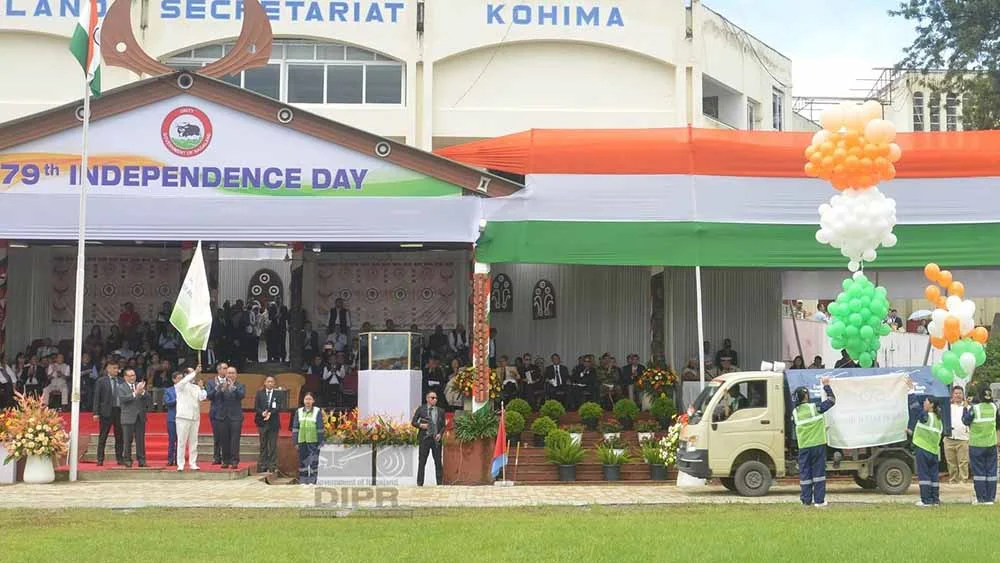Friday, 16 January 2026

Marking India’s 79th Independence Day, Nagaland chief minister Dr. Neiphiu Rio used the occasion to double down on the state’s sustainability agenda—unveiling new infrastructure for both sustainable agriculture and urban sanitation.
In a virtual ceremony from the Nagaland Civil Secretariat Plaza, Dr. Rio inaugurated ten biofertilizer production units spread across Zubza, Dimapur, Jalukie, Wokha, Zuketsa, Mokokchung, Longleng, Tizit, Tuensang, and Noklak. Eight of the units were launched directly by the chief minister, while Imkong L. Imchen, advisor for Information & Public Relations and Soil & Water Conservation, inaugurated the remaining two.
The biofertilizer units, set up under the Soil Health and Fertility Scheme of PM-RKVY by the Department of Soil & Water Conservation, represent a significant leap toward eco-friendly farming practices in the state. With each unit boasting an annual production capacity of 5,000 litres, they will supply indigenous, low-cost biofertilisers and biopesticides to farmers, demonstration farms, and government-backed agri-initiatives. The facilities are backed by a technology transfer agreement signed in July 2022 with the Central Agricultural University, Umiam, Meghalaya, covering three products: CAU Bioenhancer, CAU Jhum Bioenhancer, and Um-Met Biopesticide.
Speaking at the ceremony, Dr. Rio said the initiative reflected Nagaland’s long-term vision to balance agricultural productivity with ecological preservation. “The launch of these biofertilizer units is not just about increasing farm yields—it is about building a future where Nagaland’s agriculture is both sustainable and self-reliant,” he emphasized.
Complementing the agri-focus, Dr. Rio also commissioned 41 GPS-enabled waste collection and transportation vehicles to 20 Urban Local Bodies (ULBs) across the state under the Swachh Bharat Kosh (SBK), part of the Clean India Mission. The vehicles, equipped with public address systems, will improve monitoring and efficiency of waste collection. Alongside the fleet, sanitation workers will be equipped with uniforms, protective gear, bins, and tools to enhance working conditions and service delivery.
With 20 of Nagaland’s 39 ULBs covered in the first phase, the program signals a broader push toward modernizing waste management in the state. By leveraging CSR contributions routed through the SBK, the government aims to blend local participation with central support in reshaping urban sanitation.
Together, the two Independence Day announcements spotlight the state’s dual agenda: revitalizing its agrarian economy with biofertilizers rooted in indigenous science, while simultaneously investing in cleaner and more resilient cities. For Nagaland, the road to sustainability runs both through its farms and its streets.